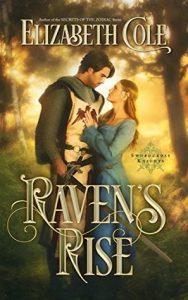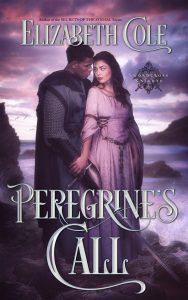Writers@Work: How to Write a Series by Elizabeth Cole
June 5, 2018
Note From Rochelle
Dear Readers,
It’s June, and that means we’re nearly halfway through the year. How are you doing on your goal to stick to a writing schedule, start your book, or finally submit that manuscript to an agent? If you’re procrastinating because you are fearful or don’t know what to do next, consider signing up for a coaching session with me. Often, I can help you solve your problem in just a single session. What are you waiting for? Sign up now.
Today, I am delighted to welcome Elizabeth Cole to the blog, who shares her best advice for how to write a series. Enjoy!
Enjoy!
Rochelle
How to Write a Series
by Elizabeth Cole
I’m a romance novelist, and in romance, readers love a series. Series allow readers to sink into a world and get to know more of the characters and settings to a degree that a standalone novel just can’t provide. Ongoing storylines can span many books, allowing a depth of development that would feel rushed in a single book. As a writer, I love a series because it’s easier to market multiple books than just one. Or, put another way, it offers more bang for your buck to get a reader engaged in a series. If you do it right, you get people to read one book, and then they want to gobble up all the rest!

So how do you actually go about writing a series? First, you need to plan ahead. For example, I wrote a series of medieval romances called The Swordcross Knights. It’s four books long, and each book tells the story of one of the four knights in this brotherhood. That meant I needed to plan out characters and story elements that I needed to know while writing the first book, even though readers wouldn’t hear about those things until the later books came out. I didn’t write exhaustive, detailed outlines for all the books (you can, but it’s not always necessary, or even ideal). I sketched out the overall idea for each character and the plot I envisioned. Having a structure and a throughline for the whole series, and not just for each book, helps the series feel coherent and whole. So, for The Swordcross Knights I had:

The Swordcross Knights #1
Series concept: In my series, a brotherhood of knights live and fight in medieval England, and each fall in love over the course of one novel. This is similar to a pitch or a logline—it tells the reader what to expect. Some series have a pretty loose concept (a gardener turns detective to
solve murders in a small town), and some have a much tighter, more detailed concept (young magic users go to a special school for wizards and each book covers one year as we watch them grow up). However, if all you’ve got is “these five people all find jobs in the city of Chicago,” that might not be enough for a series. But “five millennials are hired at a slick advertising firm in downtown Chicago, and face adult life challenges together” is totally a series concept!
Structure: Structure doesn’t have to be overt or very obvious to the reader, but it helps you keep your

The Swordcross Knights #2
spiraling stories in line. My Swordcross Knights is structured so a complete love story happens in each book, based on the ages of the male protagonists (the oldest knight’s in Book 1, to the youngest knight’s in Book 4). It’s subtle, but it’s important since each book has the other characters stepping into various scenes, and it’s realistic way to show the passage of time and the effects of external events on the characters.

The Swordcross Knights #3
Throughline: In The Swordcross Knights, the knights all work to defeat threats to the king…in addition of their individual love stories. This element provides a sense of coherency for readers, and links the books into a single shared story. For another example, think of how Voldmort’s evil machinations provide the throughline in the Harry Potter series.
Contact Points: Contact points are places in each story that connected to the other books, making each book an integral part of a larger fictional world. That might mean having the protagonist of Book 1 show up in a supporting role in Book 2. In my series, there’s a character named Octavian, who appears in all three of the previous books before he becomes the protagonist of Book 4. By building his presence in my series, I was able to connect readers to him, and now I’ve got lots of messages saying, “When will Octavian get his story? I can’t wait!” Hearing a reader tell you they CAN’T WAIT is really one of the best things a writer can hear (with “You made the New York Times bestseller list” being a close second…I assume. I haven’t personally heard that yet!).
Schedule: Speaking of readers who can’t wait, when writing a series, you also need to have a

The Swordcross Knights #4
schedule. Can you produce a book every six months? Every year? Be clear about when readers can expect the next book. Few things are sadder than checking in to see when the next book is out, only to find no information at all, or endless promises that you’re working on it (I’m looking at you, George RR Martin!). Plot out your schedule and keep to it as much as possible. This is true for indie publishers or people who are working with agents or publishers. All books need to fit into an existing publishing schedule, no matter what the specific schedule is.
If you can write one book, you can write a series! It just requires some thought up front. Develop your concept, make a publishing plan, and be open to changes along the way. Look for examples among the books you like to read—chances are you’ve already got a series lurking in your brain. Or check out The Swordcross Knights for inspiration!
Now brew another pot of coffee and get writing!
 About the author. Elizabeth Cole writes historical romance from the medieval era up to the Regency, and also publishes contemporary paranormal when the need to write in modern slang grows too strong. Her dream is to have everyone know her name and no one to know her face. Writing is a big part of that dream.
About the author. Elizabeth Cole writes historical romance from the medieval era up to the Regency, and also publishes contemporary paranormal when the need to write in modern slang grows too strong. Her dream is to have everyone know her name and no one to know her face. Writing is a big part of that dream.
She was born and raised in Wisconsin, where people are nice even to their enemies. She now lives in Philadelphia, where everybody just grunts. A grunt could mean I love you. It usually doesn’t.
Website: elizabethcole.co
Twitter: @ColeHeartedGirl
Facebook: Elizabeth Cole Writes









